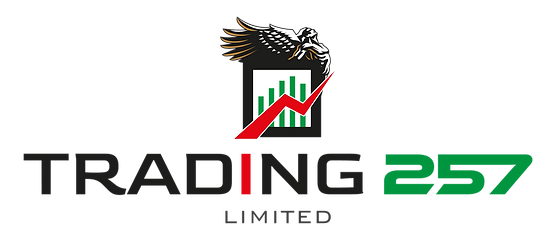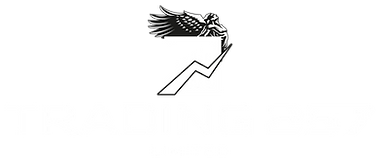ANTI-MONEY LAUNDERING POLICY
INTRODUCTION
This document describes Trading 257 Ltd. policy and commitment to the detection and prevention of any money laundering or terrorism financing activity within the products and services offered by Trading 257 Ltd to its customers.
DEFINITION
“Money Laundering” is the participation in any transaction that seeks to conceal or disguise the nature or origin of funds derived from illegal activities such as, for example, fraud, corruption, organised crime, or terrorism etc. Predicate offences for money laundering are defined by national law. The money laundering process consists of three stages:
Placement. Physically depositing cash into banks and non-bank financial institutions such as currency exchanges; converting cash into other financial instruments such as by purchasing monetary instruments (travellers’ checks, payment orders); or using cash to purchase high value goods that can be resold. Launderers often seek to deposit cash into banks in countries with low financial market regulation demands and then transfer these funds to banks in regulated environments as “clean”. Smurfing – a form of Placement where the launderer makes many small cash deposits instead of a large one to evade local regulatory reporting requirements applicable to cash transactions.
Layering. Separating the proceeds of criminal activity from their source through the use of layers of financial transactions (multiple transfers of funds among financial institutions, early surrender of an annuity without regard to penalties, cash collateralized loans, L/Cs with false invoices/bills of lading, etc.) to disguise the origin of the funds, disrupt any audit trail, and provide anonymity. Launderers want to move funds around, changing both the form of the funds and their location in order to make it more complicated for law enforcement authorities to trace “dirty” money.
Integration. Placing the laundered proceeds back into the economy in such a way that they reenter the financial system as apparently legitimate funds.
This Policy is supported by a set of programs covering the implementation of the following areas:
The adoption of a risk-based approach.
Know Your Client (KYC) Policy and Customer Due Diligence, Customer activity monitoring & Record Keeping
Trading 257 Ltd, No. 9 Cassius Webster Building, Grace Complex, P.O Box 1330, Valley , Anguilla BWI AI-2640. Registered in Anguilla Number A000001260 . Trading 257 Ltd is a member of The Financial Commission, an international organization engaged in the resolution of disputes within the financial services industry in the Forex market. Email: info@trading257.com I Web: www.trading257.com
THE ADOPTION OF A RISK-BASED APPROACH
Identification of the money laundering risks of customers and transactions allow Trading 257 Ltd to determine and implement proportionate measures to control and mitigate these risks. Used risk criteria are the following:
COUNTRY RISK
In conjunction with other risk factors, provides useful information as to potential money laundering risks. Factors that may result in a determination that a country poses a heightened risk include:
Countries subject to sanctions, embargoes, or similar measures.
Countries identified by the Financial Action Task Force (“FATF”) as noncooperative in the fight against money laundering or identified by credible sources as lacking appropriate money laundering laws and regulations.
Countries identified by credible sources as providing funding or support for terrorist activities.
CUSTOMER RISK
There is no universal consensus as to which customers pose a high risk, but the below listed characteristics of customers have been identified with potentially heightened money laundering risks:
Armament manufacturers.
Cash intensive business.
Unregulated charities and other unregulated “non-profit” organizations.
SERVICES RISK
Determining the money laundering risks of services should include a consideration of such factors as services identified by regulators, governmental authorities or other credible sources as being potentially high risk for money laundering.
THE ADOPTION OF A RISK-BASED APPROACH
Trading 257 Ltd. is an online operating brokerage company and therefore business relationships between the company and its customers are not established on a face to face basis. For customer identification purpose Trading 257 Ltd. uses electronic data brokers (linked with other in-house checks e.g., identifying duplicate accounts, confirming ownership of bank accounts etc.) to provide identity verification. This will be used to determine and document the true identity of customers to obtain background information on customers as well as purpose and intended nature of their business to us. Trading 257 Ltd. shall request from client up on commencement of business relation ship Valid Identification document such as Passport – ID – Driving license and proof of residence such as Utility bill (Not exceeding 6 month) in order to check and verify client’s true identity. During the business relationship Trading 257 Ltd. can request additional documentation or information from client to verify his identity and nature of the business. Trading 257 Ltd, No. 9 Cassius Webster Building, Grace Complex, P.O Box 1330, Valley , Anguilla BWI AI-2640. Registered in Anguilla Number A000001260. Trading 257 Ltd is a member of The Financial Commission, an international organization engaged in the resolution of disputes within the financial services industry in the Forex market. Email: info@trading257.com I Web: www.trading257.com.
Trading 257 Ltd shall obtain and document any additional customer information, commensurate with the assessment of the money laundering risk using Risk Based Approach. Trading 257 Ltd. shall identify whether the customer is acting on behalf of another natural person or legal entity as trustee, nominee, or professional intermediary. In such case obligatory precondition of customer serve is receipt of satisfactory evidence of the identity of any intermediaries and of the persons upon whose behalf they are acting, as well as the nature of the trust arrangements in place.
CUSTOMER ACTIVITY MONITORING
In addition to conducting initial customer due diligence, it is Trading 257 Ltd. policy to continue to monitor customer activity with a view to identifying any suspicious (or fraudulent) behavior. The system of monitoring that has been implemented relies on both automated monitoring and, where appropriate, by manual monitoring of transactions by the staff of Trading 257 Ltd. and any outsourced service provider. A series of status fields has been applied to customer accounts indicating their profile within the system, which assists automated monitoring. Trading 257 Ltd. has implemented a regulatory and legally compliant suspicious activity reporting process and procedure that will enable all staff to make a report to the Money Laundering Reporting Officer (MLRO) where they know, or they suspect, or they have reasonable grounds for knowing or suspecting that a person is engaged in money laundering or terrorist financing. This includes three stages to this process:
All personnel must be diligent in monitoring for any unusual or suspicious.
The reporting of suspicious transactions/activity must comply with the laws/regulations of the respective jurisdiction.
Money Laundering Reporting Officer (MLRO) must be informed about all suspicious transaction/activity on a monthly basis
RECORD KEEPING
Records must be kept of all documents obtained for the purpose of customer identification (KYC policy requirements) and all data of each transaction as well as other information related to money laundering matters in accordance with the applicable anti-money laundering laws/regulations. That includes files on suspicious activity reports, documentation of AML account monitoring, etc. Those records must be kept for a minimum of 5 years after closing off account.

